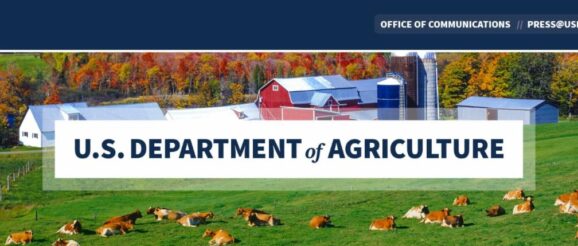USDA Announces More Than $43 Million Investment in Meat and Poultry Processing Research, Expansion and Innovation – BARN OnAir & OnLine 24/7/365

The U.S. Department of Agriculture (USDA) announced today an investment of more than $43 million in meat and poultry processing research, innovation and expansion in support of its ongoing efforts to transform the food system at every stage along the supply chain. This investment is funded through the American Rescue Plan and the Agriculture and Food Research Initiative (AFRI).
As part of this total investment, the University of Arkansas was awarded a $5 million grant from the AFRI Center of Excellence for Meat and Poultry Processing and Food Safety Research and Innovation (MPPFSRI). In addition, $13.9 million in grants from the Meat and Poultry Processing Research and Innovation – Small Business Innovation Research Phase III – program were awarded to 14 small and mid-sized meat and poultry processors. These grants are administered by USDA’s National Institute of Food and Agriculture.
Additionally, one $25 million Meat and Poultry Processing Expansion Program (MPPEP) grant was awarded to Wholestone Farms for a major plant expansion in Fremont, Nebraska. This grant was administered by USDA Rural Development.
“Farmers rely on technology to become more efficient and profitable,” said Agriculture Secretary Tom Vilsack. “Under the Biden-Harris Administration and through historic funding investments, USDA continues to invest in research processing expansion that will create new and better markets and expand opportunities for small businesses and rural communities. This investment will help enable that vision.”
The AFRI MPPFSRI program promotes novel approaches to meat and poultry processing by implementing pioneering production system technology that assesses risk management and overall enhanced food safety. The University of Arkansas, Center for Scalable and Intelligent Automation in Poultry Processing, will incorporate basic and applied research in meat and poultry processing and food safety to promote technological innovation and decrease industry barriers to safety and processing.”
As part of the MPPFSRI Phase III funding investments, prior Small Business Innovation Research (SBIR) or Small Business Technology Transfer (STTR) awardees with relevant technologies were invited to apply for this funding opportunity. Selected awardees must provide non-restrictive access or non-exclusive licenses to any technologies or related enabling technologies developed under this award to help small and mid-size processors implement the technology.
Examples of NIFA’s 14 funded MPPFSRI Phase III projects include:
RD’s MPPEP investment:
“Investments like these will deliver long-term improvements in meat and poultry processing practices to benefit consumers, farmers and the environment,” said Vilsack. “We are excited to see how these investments will generate solutions that benefit all Americans.”
The MPPFSRI Phase III objectives are to rapidly deploy emerging technologies and make applied research more accessible to independent business owners, entrepreneurs, producers and other groups, such as cooperatives and worker associations who are less resourced. The areas in which technological developments were solicited address three areas prioritized by the Secretary: monitoring and improving complex processes, worker safety and food safety.
MPPEP was designed to support capacity expansion projects in concert with other private and public finance tools. For more information about MPPEP, view the Meat and Poultry Processing Expansion Program page.
NIFA invests in and advances agricultural research, education and Extension across the nation to make transformative discoveries that solve societal challenges. For more information visit, www.nifa.usda.gov.
USDA touches the lives of all Americans each day in so many positive ways. Under the leadership of the Biden-Harris Administration, USDA is transforming America’s food system with a greater focus on more resilient local and regional food production, promoting competition and fairer markets for all producers, ensuring access to safe, healthy and nutritious food in all communities, building new markets and streams of income for farmers and producers using climate-smart food and forestry practices, making historic investments in infrastructure and clean energy capabilities in rural America, and committing to equity across the Department by removing systemic barriers and building a workforce more representative of America. To learn more, visit www.usda.gov.
